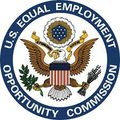 By Jude Biggs
By Jude Biggs
As we wrote last week, John Lowrie, the new director of the EEOC’s Denver Field Office, recently offered insight into the agency’s national Strategic Enforcement Plan (SEP) and how his office will approach those enforcement goals. Here is the second article in the series exploring the third and fourth priorities in the EEOC’s SEP.
Priority #3 – Developing Issues
Field Director Lowrie explained the EEOC and its individual field offices are working to advance a number of developing issues. These include:
- Reasonable ADA accommodations – one example is telecommuting, where an employee’s physical presence at the company is not an essential job function. The EEOC has successfully pursued this in a case against the Ford Motor Company but the case is being reexamined by the full Sixth Circuit Court of Appeals so may not stand.
- Pregnancy discrimination – Mr. Lowrie discussed the lengthy Pregnancy Discrimination Act (PDA) enforcement guidance issued last July. The guidance document contains many hypothetical situations that the agency deems would violate the PDA as well as a section on employer best practices.
- Title VII accommodations – Mr. Lowrie pointed to the Abercrombie & Fitch religious accommodation case which is currently before the U.S. Supreme Court as an example of how the agency looks to ensure employers make reasonable accommodations for characteristics protected by Title VII. At issue in the Abercrombie case is whether a Muslim job applicant who wore a headscarf to her job interview and was denied employment was required to request a reasonable accommodation on religious grounds in light of the company’s “look policy” which would not have permitted wearing the headscarf at work.
Priority #4 – Equal Pay Act
The fourth priority in the EEOC’s SEP is enforcement of the Equal Pay Act (EPA). Mr. Lowrie noted that Jenny Yang, who was appointed as the EEOC’s new chairperson last September, had made a recent visit to the Denver field office during which she specifically mentioned EPA issues to the Denver investigators and staff. Because equal pay issues are high on the Chair’s agenda, charges involving allegations of unequal pay based on gender will receive additional attention by EEOC investigators and attorneys.
Mr. Lowrie also noted that Wyoming is the worst state in the nation for pay disparity issues. Because the Denver field office has jurisdiction over Wyoming (as well as Colorado), the Denver field office may look to change Wyoming’s poor ranking through vigilant enforcement of equal pay charges that come into its office.
Steps to Avoid Additional Scrutiny
Because the EEOC is giving priority status to these types of charges, you need to take time to review your compliance efforts related to these issues. First, take a look at your reasonable accommodation process. Have you trained your managers and supervisors to recognize when an accommodation is being requested? Do you engage in an interactive process with the applicants and employees who make accommodation requests? Be certain to document your interactive process and all accommodations decisions you make. Second, review your policies as they relate to pregnant employees. Make sure that you do not treat pregnancy less favorably than other medical conditions and consider possible ADA accommodations if circumstances so warrant. Third, audit your pay grades and compensation structure to make sure that you are paying workers doing the same work equally, regardless of gender.
Next Installment Will Focus on Final Two EEOC Priorities
In the next and final article in this series, we will offer insight into the last two of the EEOC’s strategic priorities. Both are areas in which the EEOC has vigorously sued employers whose policies and practices it deems are discriminatory, so stay tuned.

